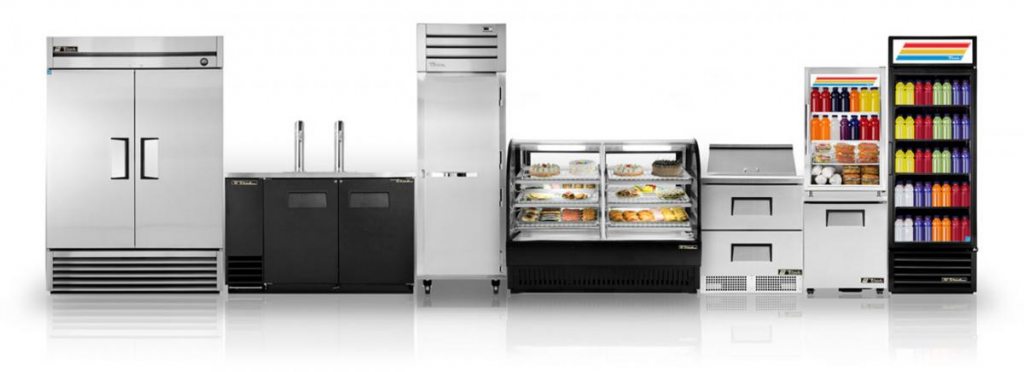Crucial Tips for Effective Ref Repair to Expand Home Appliance Lifespan
When it comes to your refrigerator, correct repair and maintenance are crucial for long life. Understanding common issues and understanding when to act can make all the distinction.
Understanding Common Refrigerator Issues
Fridges are essential in keeping your food fresh, yet they can come across a variety of common troubles that disrupt their efficiency. One frequent concern is insufficient air conditioning. If you discover food ruining quicker than typical, examine the thermostat settings or think about if the door seals are damaged. One more typical problem is too much sound, which could suggest a malfunctioning compressor or a failing follower. You might additionally experience water merging inside or below the refrigerator; this often arises from a clogged up defrost drainpipe or a damaged water line. In addition, if your refrigerator's light isn't working, maybe a simple light bulb concern or a trouble with the door button. Ice build-up in the fridge freezer can prevent air movement and cooling down performance. Recognizing these issues early can save you time and money in repair work, ensuring your refrigerator runs smoothly and successfully.
Routine Upkeep Practices
To keep your devices running efficiently, you require to remain on top of routine maintenance methods. Tidy the condenser coils, check the door seals, and check the temperature level settings to assure peak performance. These simple tasks can conserve you time and money on fixings down the line.
Clean Condenser Coils Routinely
Cleansing your condenser coils routinely can greatly enhance your appliance's performance. Dirt and dirt develop on these coils with time, triggering your device to work harder and consume more energy. To maintain them tidy, disconnect your appliance and very carefully remove any type of safety covers. Utilize a vacuum cleaner with a brush attachment or a soft brush to delicately remove debris. If required, a combination of warm water and moderate cleaning agent can help get rid of stubborn crud. See to it to allow everything dry completely before rebuilding and connecting the appliance back in. Aim to clean your coils a minimum of twice a year, or regularly if you have family pets or stay in a dusty environment. This easy job can extend the lifespan of your device significantly.
Check Door Seals
Three straightforward steps can aid you ensure your appliance's door seals are in excellent problem. Evaluate the seals consistently for any type of cracks, rips, or indications of wear. These damages can bring about air leakages, influencing effectiveness. 2nd, clean the seals using cozy, soapy water to remove any kind of debris or grime. A clean seal ensures a limited fit and much better efficiency. Carry out a simple test by closing the door on a piece of paper. If you can quickly draw it out without resistance, the seal could require changing. By following these steps, you'll maintain your home appliance's effectiveness and longevity, saving you money on energy costs and repair work in the future.
Screen Temperature Level Setups
Regularly checking your home appliance's temperature settings is important for best efficiency and effectiveness. Use a thermometer to check these settings regularly, specifically after significant adjustments, like moving your appliance or adjusting the thermostat. By remaining proactive concerning temperature surveillance, you'll ensure your devices run smoothly and last much longer.
Fixing Cooling Problems
When your refrigerator isn't cooling down correctly, it can result in ruined food and lost cash, so dealing with the problem quickly is important. Beginning by checking the temperature settings to confirm they go to the advised degrees, usually around 37 ° F for the fridge and 0 ° F for the freezer. If the setups are proper, evaluate the door seals for any spaces or damage; a malfunctioning seal can permit cozy air to enter.
Following, take a look at the vents inside the refrigerator and freezer. Validate they're not obstructed by food products, as this can interfere with air movement. Pay attention for the compressor; if it's not running or making uncommon sounds, it might require focus. Ultimately, examine the condenser coils, usually located at the back or base of the system. Dust and debris can accumulate, causing cooling issues. Tidy them with a vacuum cleaner or brush to maximize efficiency. If troubles linger, it could be time to call a professional.
Dealing With Water Leak and Ice Build-Up
If you're handling water leakage or ice accumulation in your device, it's vital to recognize the resource of the issue. By identifying where the water is coming from, you can avoid further concerns and prevent expensive repairs. Allow's check out some efficient techniques to tackle these usual issues.
Determine Leakage Sources
Just his explanation how can you successfully recognize the sources of water leakage and ice accumulation in your devices? Start by checking the seals and gaskets on your fridge and freezer doors. By systematically examining my review here these areas, you'll identify the source of the issue, allowing you to take the required actions to repair it and expand your device's lifespan.
Avoid Ice Development
To prevent ice formation in your home appliances, beginning by validating the temperature settings are appropriate. If your fridge or freezer is as well chilly, it can bring about too much ice accumulation. Examine the door seals consistently; harmed seals can allow cozy air in, causing condensation and ice formation.
Keep the appliance well-ventilated and prevent congestion, as this can block air movement - Refrigerator repair experts Dependable Refrigeration & Appliance Repair. Consistently thaw your fridge freezer if it doesn't have an automatic defrost feature.
If you observe water leakage, determine and deal with any type of blocked water drainage openings, as they can contribute to ice buildup. Ultimately, clean the coils and verify they're operating effectively to preserve peak performance. Taking these steps will aid prolong your appliance's life-span and effectiveness.
Dealing With Noisy Fridge Appears
While it might appear worrying, a loud refrigerator frequently signifies minor concerns as opposed to significant malfunctions. Initially, determine the source of the noise. Typical culprits consist of the compressor, fans, and water lines. If you listen to a buzzing audio, it could be the compressor working hard; this might simply be a typical procedure noise.
Following, inspect for loose products inside. In some cases, containers or shelves can rattle, producing undesirable noise. Tighten or reposition them to remove the sounds.
If you observe a clicking sound, it could be the defrost timer. This is commonly harmless however might show it requires inspection.
Lastly, verify your refrigerator is degree. An out of balance device can produce vibrations and noise. Utilize a level to inspect, and change the feet if required. Addressing these issues quickly can assist preserve your refrigerator's performance and extend its life expectancy.
When to Replace Components vs. Complete Replacement

Think about the price of repairs versus the appliance's worth. In addition, if you notice recurring troubles that keep reoccuring, it's an indication that your device has actually reached the end of its life.
Knowing When to Call a Specialist
Exactly how can you tell when it's time to hire a specialist for home appliance repair? If you observe unusual sounds, smells, or leaks, it's a clear signal that something's wrong. Do not ignore these signs; they typically show much deeper issues. If your appliance quits working completely or frequently journeys circuit breakers, it's another red flag.
You ought to additionally consider your very own convenience degree with repair work. If you're uncertain concerning identifying the trouble or do not have the right devices, it's finest to connect for assistance. Bear in mind, trying complicated repair services can lead to more damages or also safety and security hazards.

Frequently Asked Questions
Exactly how Typically Should I Clean the Fridge Coils?
You must cleanse your refrigerator coils every 6 months. This aids keep performance and stops overheating. If you discover extreme dirt or animal hair, tidy them much more regularly to guarantee your fridge runs efficiently.

Can I Use Vinegar for Cleansing My Fridge?
Yes, you can use vinegar to cleanse your refrigerator! It's an exceptional natural cleaner that eliminates smells and stains. Dependable Refrigeration & Appliance Repair Refrigerator repair specialist of Oro Valley. Simply blend it with water, apply it to surface areas, and clean down for a fresh, tidy refrigerator
What Temperature level Should My Fridge Be Establish To?
You should set your refrigerator to 37 ° F(3 ° C) for optimal food preservation. This temperature level keeps your food fresh while protecting against spoilage, ensuring your groceries last longer and reducing waste. It's an easy adjustment you can make!
Does a Refrigerator Required to Be Leveled?
Yes, your fridge needs to be leveled. If it's uneven, it can influence cooling down efficiency and cause excess noise. Inspect the leveling legs and change them to assure correct balance for perfect efficiency.
How Can I Lower Fridge Energy Consumption?
To lower your refrigerator's energy intake, maintain it tidy and well-ventilated, examine door seals for leakages, set the temperature level between 35-38 ° F, and avoid overloading it. These steps can significantly lower your energy costs.